

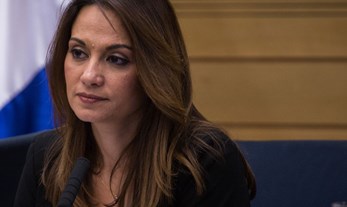
Women's Representation in the Knesset and the Government: An Overview
Written By: Dr. Assaf Shapira, Prof. Ofer Kenig, Avital Friedman
Women still constitute less than 30% of all Knesset members and the percentage of female cabinet members in the government has never risen above 23.5%

Another Victim of the Pandemic: Our Fundamental Rights
Written By: Prof. Yuval Shany
There is no doubt that the Government has an obligation to employ meaningful measures against the pandemic, but the ease with which it was willing to infringe basic rights—is most disturbing

NEET Young Adults in Arab Society
Written By: Dr. Nasreen Haddad Haj-Yahya, Merav Shaviv
A new IDI study on NEET (Not in Employment, Education, or Training) finds close connection between academic education and NEET in young adulthood

Changes in Work Patterns and in Demand for Skills in the Post-COVID Labor Market
Written By: Daphna Aviram-Nitzan, Rachel Zaken
Insights from 2020 Israel Democracy Institute Surveys and from the World Economic Forum’s Future of Jobs Report 2020
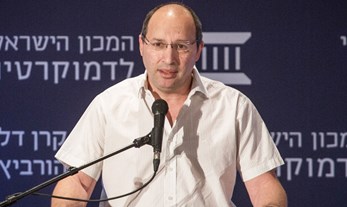
Former Minister of Justice Avi Nissenkorn Joins the Israel Democracy Institute
As part of his role at the Institute, Nissenkorn will promote initiatives focused on adapting the labor market to the post-COVID era, to improve government function and to fortify IDI’s efforts to strengthen democratic institutions and the rule of law.

Conversions Now Have Official Recognition
Written By: Dr. Shuki Friedman
"These conversions now have official recognition of what is perhaps the most important Israeli law: the Law of Return"

ISA Contact Tracing – Supreme Court Decision
Written By: Dr. Tehilla Shwartz Altshuler, Dr. Rachel Aridor-Hershkovitz
Israel's Supreme Court ruling on ISA's contact tracing is a reflection of the government’s decision-making processes during COVID
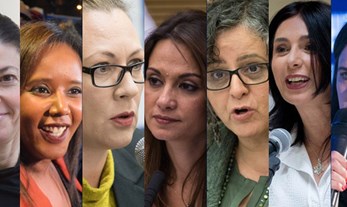
Women's Representation in Israeli Politics
Written By: Prof. Ofer Kenig
Dr. Ofer Kenig weighs in on whether the trend toward greater representation of women in the Knesset has come to a standstill and do Israeli governments suffer from high levels of gender inequality

Disqualification of Electoral Lists and Candidates by the Central Elections Committee
Written By: Dr. Dana Blander
In Israel any individual or organization can request the disqualification of an electoral list - also interesting to note that there is no equivalent to the Central Elections Committee in any other democratic state

Out of Flight Mode
Written By: Adv. Amir Cahane
The Supreme Court ruled to limit contact tracing but is it really possible to put an end to the ISA’s bulk coronavirus surveillance?
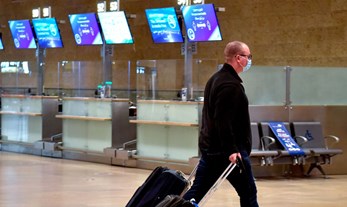
Israel Barring Entry to its Own Citizens in COVID Clampdown
Written By: Prof. Yuval Shany, Prof. Mordechai Kremnitzer, Dr. Amir Fuchs, Dr. Guy Lurie, Dr. Nadiv Mordechay
Setting sweeping restrictions on Israeli citizens’ ability to return to the country from overseas is extremely problematic from a constitutional perspective and is without parallel in the democratic world

Working from Home: Lessons from the COVID-19 Crisis
Written By: Daphna Aviram-Nitzan, Rachel Zaken
Numbers working from home skyrocketed with the outbreak of the pandemic mainly among white-collar workers, workers with an academic degree, and high-salary workers

Israel at the Precipice: Will the March Election Bring an End to Israel’s Political and Economic Crisis?
Written By: Yohanan Plesner , Prof. Karnit Flug, Dr. Jesse Ferris
As Covid-19 continues to take Israeli lives and ravage its economy, seemingly immune to Israel’s impressive vaccination campaign, IDI President Yohanan Plesner and Professor Karnit Flug, Vice President, Research and William Davidson Senior Fellow for Economic Policy joined IDI's VP of Strategy Dr. Jesse Ferris on a JFN webinar to discuss the stakes and possible outcomes of Israel’s fourth election in less than two years.
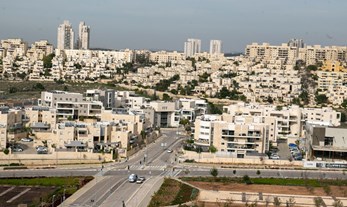
The State of Israel is Stuck in the 1980s
Written By: Dr. Ariel Finkelstein
The pandemic has brought to the fore what was already clear - the public's trust in Israel’s local government is much higher than in the central government. It is high time more authority to be transferred to the care of local leaders.

On the Fringes of Ultra-Orthodox Society
Written By: Dr. Asaf Malchi
Government agencies have not geared up to effectively address the phenomenon of marginalized ultra-Orthodox youth
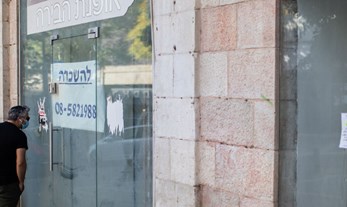
The Economic Impact of COVID: Survey Finds Decline in Financial Liquidity Among Israeli Workers
Written By: Yarden Kedar
A special IDI survey on the economic impact of the COVID crisis finds that worker's financial liquidity has declined sharply with 31% of respondents reporting that they had no liquid funds to support themselves.

The Ruling by the International Criminal Court: Background, Analysis, and Implications
Written By: Prof. Amichai Cohen
The ICC's ruling to allow the possibility of an investigation into Israeli actions is only the start of a process that is likely to go on for many years. What are the next steps and what are the possible implications for Israel?

Did You Know? Israel has no Law Guaranteeing the Basic Right to Equality
Written By: Dr. Amir Fuchs
A bill to include the right to equality in Israel's Basic Laws recently passed a preliminary reading in the Knesset. This is a much-needed amendment to an existing law, which would provide Israelis with legal provision that exists in the constitution of all democratic countries.
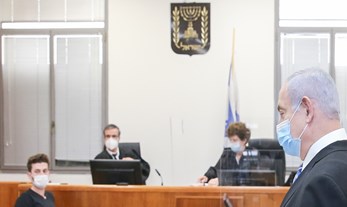
A Prime Minister on Trial: Qs and As
Written By: Dr. Amir Fuchs
The Prime Minister's trial reconvenes with a pandemic raging and the elections camping continuing. What can we expect?

IDI Holds Forum With Party Leaders for First-Time Voters
In a special broadcast ahead of the March election, first-time voters were given the opportunity to pose difficult questions to leaders of the major parties.

Majority of Israelis: Netanyahu’s Efforts to Forge Ties with Arab Public Insincere
Written By: Prof. Tamar Hermann, Dr. Or Anabi
A large majority of Israelis think Netanyahu’s efforts to forge ties with Arab Israelis are insincere - 25% of Arab Israelis think they should nevertheless cooperate.
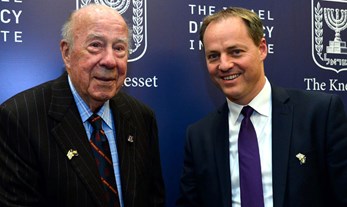
IDI Mourns the Passing of its Chairman, Secretary George Shultz
It is with great sadness and a profound sense of loss that the Israel Democracy Institute acknowledges the passing of Secretary George P. Shultz, one of the greatest statesmen of the twentieth century.

On the decision by the ICC in The Hague
IDI Vice President Prof. Yuval Shany on the decision by the International Criminal Court in The Hague (ICC): "It will be a long time before the investigations mature into indictments or arrest warrants."
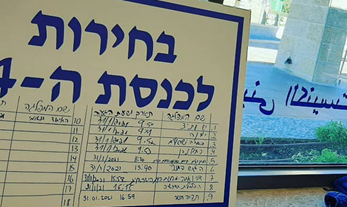
Who's Running? The Final Lists of Parties and Candidates for the 24th Knesset
Written By: Prof. Ofer Kenig
The final list of parties and candidates have been submitted and it appears that at least 20, perhaps even 30, of the 120 MKs elected in 2020 will not serve in the next Knesset.
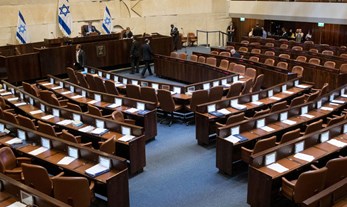
How Many Knesset Members Have Lasted in Politics Since 2009?
Written By: Prof. Ofer Kenig
The data reflects a very high turnover rate in Israel's political system. This has both positive and negative aspects. On the one hand - a robust political system should be refreshed - but it can also be a symptom of a "sick" system
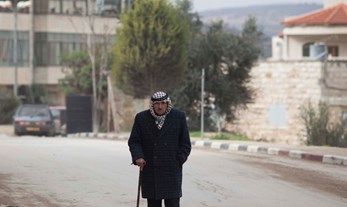
The War on Crime in Israel's Arab sector isn't a Negotiable Commodity
Written By: Dr. Nasreen Haddad Haj-Yahya, Adv. Oded Ron
Arab citizens have the right to feel that their security is protected by the government. This right should be respected and protected declaratively and in practice.
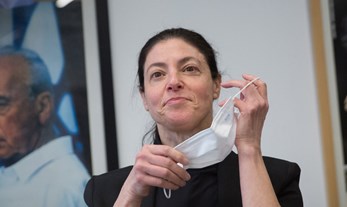
The Labor Party Primary Elections
Written By: Prof. Ofer Kenig
Labor was the only political party to elect its chair and candidates for the Knesset in primary elections consecutively since 1992 – including in the 2021 election. While its membership is dropping, this is consistent with ongoing trends in most Western democracies.

Online Platforms are Making Up Free Speech Rules as They Go—and It’s Concerning
Written By: Prof. Yuval Shany
Banning users from social media platforms raises concerns about free speech protections online

COVID-19: Initial Survey Findings on Self-Employed Workers in Israel
Written By: Daphna Aviram-Nitzan, Yarden Kedar
As of the beginning of December 2020, 75% self-employed workers were working, though 45% were working only part-time. Only 29% were working the same number of hours as before the crisis.

1/3 of Complaints against Rabbinical Judges in Israel are Justified
Written By: Dr. Ariel Finkelstein
A new study by IDI expert Ariel Finkelstein presents a detailed and systematic analysis of the conduct of Israel's rabbinical courts - finds 30% of complaints categorized as: "Violation of the Principles of Natural Justice"

